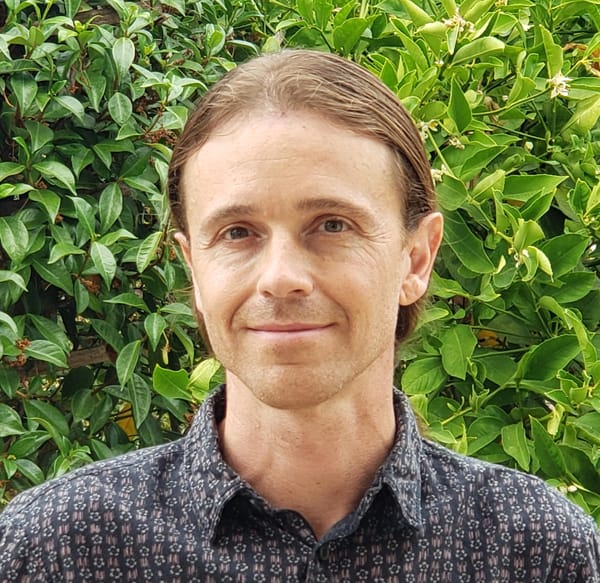VALLEJO – The Vallejo City Council voted unanimously on Tuesday to postpone amendments to the city’s police commission ordinance until new councilmembers are seated in January after councilmembers received letters from community members and civil rights organizations expressing concerns that changes proposed by a settlement with the police union would reduce the commission’s power.
The Police Oversight Commission Ordinance was adopted in December 2022 but implementation of the ordinance has been delayed due to required “meet and confer” negotiations with the Vallejo Police Officers Association.
At Tuesday’s City Council meeting, Deputy City Attorney Randy Risner said that if the council chooses not to approve the amendments to the ordinance, the dispute between the city and the police union would likely go to litigation, which could further delay implementation, perhaps for years.
The staff report for the revised ordinance stated that, “the changes requested by VPOA do not impact the original intent of [the ordinance] to provide meaningful oversight of the Vallejo Police Department.”
The amendments alter the language throughout the ordinance to remove the word “recommendation” and replace it with the word “opinion” when referring to the findings of the commission.
The Northern California Chapter of the American Civil Liberties Union wrote a letter to city councilmembers on Tuesday expressing concerns that this change along with the other amendments would weaken the commission's ability to provide meaningful oversight of the Police Department.
“Replacing the word ‘recommendation’ with the word ‘opinion’ would be a way for VPD to downgrade, ignore and otherwise not take seriously the weight of the commission’s recommendations,” ACLU Legal Policy Analyst Marshal Arnwine wrote in the letter.
“A recommendation implies that there will be a formal response from VPD as to whether VPD will accept or reject the commission’s recommendation and then provide their reasoning for it. On the other hand, an ‘opinion’ implies VPD could just hear the commission's opinion and simply ignore it,” Arnwine wrote.
The ACLU letter also called attention to a proposed amendment to the ordinance that would remove mandatory video recording of interviews with officers or witnesses involved in a serious incident. Instead the interviews would only be recorded on video with the consent of the investigator and the interviewee, although audio recording would still be mandatory.
“Video recording is extremely important because it is another accountability mechanism to evaluate the witness’ demeanor far better than what audio only can capture,” Arnwine wrote.
“Demeanor is important to evaluating credibility and truthfulness. Interviews must remain video recorded for the same reasons police officers have body-worn cameras, to demonstrate transparency to the community, document statements, behaviors, and evidence. This accountability procedure should be no different,” Arnwine wrote.
The Vallejo Chapter of the NAACP pointed to these concerns as well in its own letter to the city council. Both organizations called for more time for the community and the police oversight and accountability commissions to review the changes.
The two organizations also raised transparency concerns, stating that the staff report for the ordinance revisions did not provide an explanation of why the changes were necessary.
Risner said that since the proposed revisions to the ordinance are the result of a settlement that the city reached with the VPOA through a Public Employment Relations Board process, the reasoning behind the changes and other information related to the negotiations is confidential.
Risner also said that any litigation discussed in closed session is also confidential and protected under attorney-client privilege, which the council had not waived.
The creation of an independent oversight body is one of the original 45 reforms required by a three-year agreement between the city, the Police Department and the California Department of Justice. That agreement came to a close in June 2023 with less than half of the reforms complete.
The Justice Department then initiated a new five-year agreement that ultimately provided for an independent reform evaluator to track the department’s progress in completing the 20 remaining reforms.
Shortly after the council adopted the police oversight ordinance in December 2022, the VPOA filed an action with the Public Employment Board claiming that the commission ordinance was invalid because the city had not properly engaged in a meet and confer process with the police union.
While the dispute over the ordinance between the city and the VPOA moved through the Public Employment Board mediation process, the two parties reached an interim settlement agreement that allowed for the city to appoint the board commissioners in February so they could begin an extensive training process that is expected to take six to nine months, according to Risner. However, as of earlier this month, training had still not begun.
The Public Employment Relations Board is a quasi-judicial agency with the power to make rulings in public employment disputes. The board’s rulings are binding unless the parties involved initiate litigation.
At Tuesday’s meeting, Risner said that if the council decides not to adopt the ordinance, the city would need to proceed with the Public Employment Board case, which could take an entire year and further delay implementation of the ordinance.
Risner added that the Public Employment Board has a history overturning even voter-approved police oversight ordinances. He said that the Public Employment Board overturned Sonoma County’s oversight board for the sheriff’s office for a similar issue relating to the meet and confer process in 2021. The parties appealed that case and the appeals court did not rule until 2023.
The Justice Department selected Chicago consultant Jensen Hughes as the independent evaluator to monitor the department’s progress. The group released a work plan on their website in October which notes that the police commission is a foundational oversight body that is important to the successful completion of the remaining reforms.
The work plan lists implementation of the commission as one of the reforms that the group anticipates to complete in the first year.
Before you go...
It’s expensive to produce the kind of high-quality journalism we do at the Vallejo Sun. And we rely on reader support so we can keep publishing.
If you enjoy our regular beat reporting, in-depth investigations, and deep-dive podcast episodes, chip in so we can keep doing this work and bringing you the journalism you rely on.
Click here to become a sustaining member of our newsroom.
THE VALLEJO SUN NEWSLETTER
Investigative reporting, regular updates, events and more
- policing
- government
- Vallejo
- Vallejo Police Department
- California DOJ
- Vallejo City Council
- Vallejo City Hall
- Vallejo Police Officers Association
- Randy Risner
- American Civil Liberties Union
- NAACP
- Marshal Arnwine Jr.
- California Public Employment Relations Board

Ryan Geller
Ryan Geller writes about transitions in food, health, housing, environment, and agriculture. He covers City Hall for the Vallejo Sun.
follow me :




